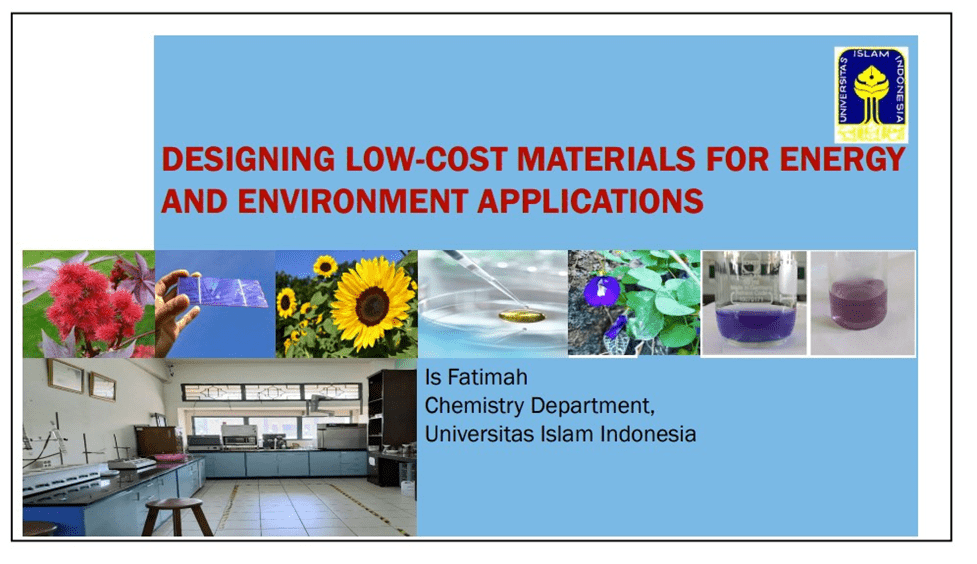You are here
BSc in Chemistry Study Programme Guest Lecture on Nanochemistry Technology Course by Prof. Dr. Is Fatimah

Lectures for the even semester of the 2020/2021 school year at Yogyakarta State University have started since February 8, 2021. The conditions of the Covid 19 pandemic that have not yet ended have made the lecture process continue to be carried out using the online method.
February 13, 2021, the inaugural lecture of Nanochemical Technology at the Department of Chemical Education, Yogyakarta State University has also been carried out. The Nanochemical Technology course is an elective course in the Chemistry Study Program of FMIPA UNY which studies material engineering technology at the nanometer scale or one per one billion meters of atoms or molecules to obtain controllable properties as desired. This technology is a combination of chemical, material and physical sciences, as well as engineering, biology and medical applications. Nanochemistry is a scientific discipline in nanotechnology that deals with the synthesis of building blocks that depend on size, surface, shape and defect properties into a functional structure and may be useful for electronic, photonic, bioanalytic, environmental or other problems.
The inaugural lecture on Nanochemical Technology presented a guest lecturer Prof. Dr. Is Fatimah, M.Si, from the Department of Chemistry, Faculty of Mathematics and Natural Sciences, Islamic University of Indonesia. The lecture was attended by 50 students who took Nanochemical Technology courses and several students who carried out research on nanomaterial engineering. The topic presented in this online course is "Designing low-cost nanomaterials for energy and environmental applications". The presentation he delivered in this lecture included:
- Motivation: Principles of green chemistry
- Sustainable environmental technology
- Low-cost material functionals
- Modified clay as photocatalyst-sonocatalyst
- Modified clay as magnetic adsorbent
- Sustainable resources-biomass to energy and chemicals
The conclusion that can be drawn from this lecture is that the development of magnetic composite materials based on Indonesia's natural resources can be carried out in the direction of low-cost adsorbent / photocatalyst for water treatment. In addition, exploration from various sources is still needed to enrich this potential study. From the student side, this can be one of the triggers to continue doing research in this field.
Information System
Kontak Kami
Program Studi Kimia
FMIPA Universitas Negeri Yogyakarta
Kampus Karangmalang Yogyakarta 55281
Telp. (0274)586168 Pes. 115
Email: kimia@uny.ac.id atau s1kimia@uny.ac.id
Copyright © 2026,
